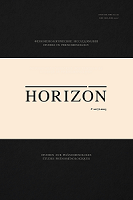ШЕЛЛИНГИАНСКИЕ МОТИВЫ В ФЕНОМЕНОЛОГИИ М.РИШИРА: ФЕНОМЕНОЛОГИЧЕСКОЕ БЕССОЗНАТЕЛЬНОЕ И ТРАНСЦЕНДЕНТАЛЬНЫЙ ГИПНОЗ
SCHELLINGIAN MOTIVES IN M.RICHIR’S PHENOMENOLOGY: PHENOMENOLOGICAL UNCONSCIOUSNESS AND TRANSCENDENTAL HYPNOSE
Author(s): Kate KhanSubject(s): Philosophy, German Idealism, Phenomenology
Published by: Издательство Санкт-Петербургского государственного университета
Keywords: Richir; Schelling; phenomenological unconsciousness; phenomenalization; affectivity; mythology; sublime; tyrannic; transcendental hypnosis;
Summary/Abstract: The article provides a philosophical reconstruction of the composition of key motives in the phenomenological project of Mark Richir, who is known for his criticism of the symbolic institution. Following Richir’s deep inspiration in Schelling’s philosophy allows to find connections between his theory of the phenomenological unconscious and affectivity, his commentaries concerning Greek mythology and mythological thinking in La Naissance de Dieux—and his political theory. Along with general historical and philosophical comments on a number of translations of Schelling into French, Richir repeatedly refers to Schelling in his own theoretical arguments. The research shows how some of Richir’s concepts — in particular, his interpretation of the phenomenological unconsciousness, myth, the Protean nature of power, the change of grand epochs as a change of types of the symbolic institutions of power—can be understood on the basis of relevant passages from Schelling’s philosophy, and how a semantic genealogical connection between them can be built. By considering the importance of the phenomenological unconsciousness in the course of phenomenalization process as described in Richir’s works, it is proposed to contrast the interpretation of the unconsciousness, which retains its simple mystery and the ways of dealing, with it in Richir’s version: while psychoanalysis is striving for the “disenchantment” of the unconsciousness by means of translating it into the symbolic language and transferring the living potentiation of meaning into the reproduction of a symptom. Richir’s phenomenological appeal to mythology turns out to be a non-trivial shift from theoretical philosophy to practical philosophy. The article also pays attention to the theory of power in Richir and Lefort, which presumably dates back to La Boétie. It is proposed to reveal the antithesis of the imaginary policy of the despot proposed by Richir, reproducing the symbolic institution of power and supporting the transcendental illusion of the need for control and order in the form of a kind of “hypnosis”—and real politics as a praxis of freedom.
Journal: Horizon. Феноменологические исследования
- Issue Year: 12/2023
- Issue No: 1
- Page Range: 195-215
- Page Count: 21
- Language: Russian

